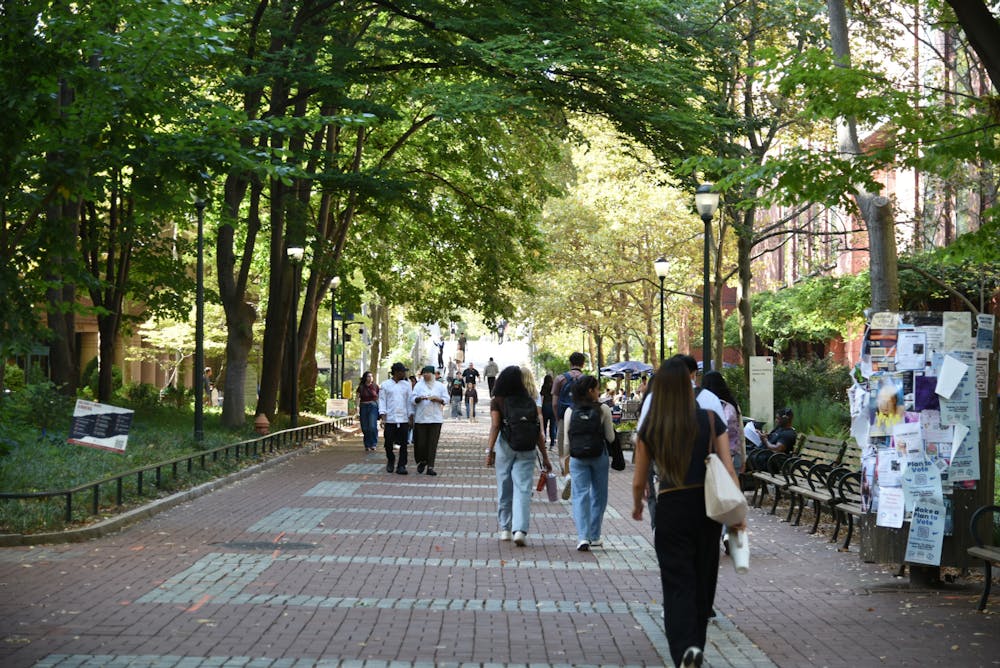
As fall break came to a close, our Instagram feeds seemed to be flooded with flashy stories detailing glamorous trips to cities like New York City or even Paris over our three day recess. If anything, it served as a reminder that the wealth that underlies Penn’s student body doesn’t disappear when you physically leave the Penn Bubble. Those who could afford to take trips had the privilege of strolling downtown, while those who couldn’t afford to go home for the break were met with an onslaught of unabashed questions about their continued presence on campus. For some, it is unimaginable that one wouldn’t go home and visit their families if given the opportunity, while forgetting that not everyone is afforded that same chance.
Observing wealth is a core tenant of attending an “elite” institution like Penn whose elite status is dependent on the various socioeconomic barriers needed to overcome to attend. As less wealthy students have less access to resources such as SAT prep, personal college advisors, and private tutors that aid in the college application process, the lower acceptance rate of schools like Penn means that it will be easier for wealthier students with access to more resources to attend. However, the ability and deservedness to attend these selective schools are not mutually exclusive.
The end of affirmative action saw a change in the way we perceive who deserves to attend certain "elite" institutions. When race-based admissions became illegal, the idea that people were admitted into colleges because of their race morphed into a new assumption about the socioeconomic status of students of color: if you got in as a student of color, you must have some sort of financial or legacy privilege that afforded you this opportunity. Essentially, now that race is no longer an admission factor, students of color must have gotten in due to their class.
In 2017, 71% of Penn students came from the top 20% of the wealth distribution; 19% of which were in the top 1%, indicating a staggering presence of economic inequality and segregation. The upper limit for financial aid aligns with the income level required to be in the top 20% of earners. However, since 2017, the proportion of people in this top 20% has decreased to 54%. While an increase in economic diversity is beneficial for the student body, it also has paved the way for the reestablishment of the model minority myth. This refers not only to the assumed success of one racial group, implying that they need less financial aid. The myth also suggests that being a low-income student of color means you must have been “one of the good ones.” This also implies that “high-achieving” students of color are an anomaly, and it perpetuates the harmful and elitist assumption that students of color must face higher standards than those who come from economically privileged backgrounds. This assumption is dismissive of the hardship undertaken to attend an elite institution such as Penn.
While elitism is no doubt a conditional and integral part of attending an elite institution, it is not an attitude that we are required to perpetuate. The elitist culture surrounding the assumption that everyone at Penn, or any similar institution, is rich, limits our idea of what constitutes “successful.” The beauty of Penn’s holistic admission practice is that an applicant’s entire story is taken into consideration, not just the facts and figures of their socioeconomic background. To consider otherwise would be to disregard the original purpose of affirmative action (compensation for socioeconomic disadvantages often faced by underrepresented groups) and what affirmative action has left in its absence: more room for holistic consideration of an applicant.
We must strive to unlearn the bias that Penn creates. In doing so, we are not only preparing ourselves to enter our globalized world, but also allowing ourselves to see each other in our entirety. First-generation, low-income students are multifaceted, and their stories are more than their socioeconomic backgrounds. When we allow ourselves to see others as more than just an idea of success, we are able to take advantage of all that the Penn community has to offer.
TIYYA GEIGER is a College first year studying political science from Lancaster, PA. Her email address is tiyyag@sas.upenn.edu.
The Daily Pennsylvanian is an independent, student-run newspaper. Please consider making a donation to support the coverage that shapes the University. Your generosity ensures a future of strong journalism at Penn.
Donate







